- Home
- Lynne Connolly
Dauntless Page 5
Dauntless Read online
Page 5
“I wouldn’t dream of discommoding you,” Dru said stiffly. She had no desire to prolong what was turning out to be an embarrassing display.
Ivan leaned closer. “Don’t be awkward, Dru. For heaven’s sake, come away.” He spoke so quietly she could barely hear him, but his words had the desired effect.
“If Lady Branwell is sure. I am very muddy.”
“If it weren’t for the rain we had yesterday, the ground would have been much harder,” someone from the crowd commented. “It’s the hardness of the ground that matters, eh, Mountsorrel?”
Dru was turning, but she caught the duke’s features as they stiffened into a haughty mask. By now, she knew him well enough to tell that something had struck him hard, and it wasn’t the muddy ground.
Lady Branwell actually elected to take shelter with her husband, who was riding alone. The crowd watched, amused, as she made him alight and lead his horse. “She must be desperate to actually talk to him,” Dru remarked acidly. The Branwells were not on the best of terms.
“Have you seen the back of your gown?” Ivan answered her. “I shall need to reupholster my carriage seat after I have taken you home.” When she tried to pull away from him, he growled and tugged her closer. “Oh, no, you don’t. I will perform my duty, or your father will have my head. So will mine, come to that,” he added ruefully. “Let them gossip. You don’t have to listen to it.”
Tears threatened to overwhelm her as her reaction set in. She recognized it for what it was—shock—but she could not control it.
Briskly, Ivan helped her into the seat of his own vehicle. Someone had the foresight to lay a blanket over the part of the seat that she now occupied. At least she did not have to blame herself for ruining his upholstery.
Ivan deftly turned his horses and set out for the entrance to the Park. Dru sat stiffly beside him, hands folded in her lap, ignoring the stares of the people they passed. By morning they’d be the primary topic of conversation—again. “We meant to put the rumors to bed with this drive,” she remarked, careful to keep the tremor from her voice. She did not want him to know how shaken she was. Not only for her own sake, but because she’d discerned something disturbing in him. He had worked hard to hide his own distress, but she had seen it, sensed it. Instinctively she knew she needed to keep the duke’s secret. She would not talk to anyone about his reaction. “We planned to drive in the Park, so people could see we were perfectly friendly, and last night meant nothing.”
“Instead, you’ve increased the problems tenfold,” Ivan said dryly. “Such a pity, but this incident will most surely resurrect the old stories.”
“What old stories?” She could not think of anything that fitted.
Ivan spared her a glance as he took the corner out of the Park. “You don’t know?”
“Know what?” After the events of the morning, she was close to snapping.
“Goodness me,” Ivan said mildly. After negotiating a particularly busy corner, in which he deftly maneuvered his way around two carriages trying to take up the whole street, he spoke again. “He has a brother. Did you know that?”
Dru was forced to admit that she knew little about him, except he was wealthy, a duke, and annoying and appealing in almost equal measure.
“Ah.” Ivan glanced at her. “I can’t believe that your mother didn’t tell you.”
“I only met him last night, and we didn’t expect him to call today. He doesn’t come to London often. I knew of his existence, but that was all.” Guiltily, she repressed memories of her story and how hard she’d worked on it. The crossings-out would have to be carefully rewritten to clean copy. But not now. She forced herself to stop her mind going to the place where it was safe and happiest.
“I see. Did you notice his scars?”
What was this, a guessing game? Dru grimaced. “Yes, I noticed them. Clean, as if glass had cut him.” Or a knife. She’d made it a knife in her story. She’d used those scars mercilessly, and given them a sinister history.
“Exactly. He got them in an accident when he was sixteen. He overturned a carriage, just like today, except without such a happy outcome.” He grinned at her, a sudden flash of amusement. “You know it was, coz. You got away lightly.”
Dru wasn’t about to disagree with him.
“He was driving, and his younger brother sat beside him. Charles.”
“Charles and Oliver?” she questioned.
“Yes. Their parents came from families who took opposite sides in the Civil War. The names were a symbol of compromise. Or a grand joke, nobody is sure which.” He took another corner.
Gratefully, Dru recognized her cousin’s sedate speed compared with his usual neck-or-nothing driving style.
“The horses dragged them away. Charles managed to cut them loose with a knife he had in his pocket, but the carriage overturned and collapsed. Oliver sustained a few cuts and bruises, but Charles was not so lucky.”
“Is he alive?” she said, hardly daring to breathe.
“Yes, but to this day he lives as a recluse. He was badly injured. Nobody except his family knows how much. Most people believe he went mad or imbecilic in the fall.”
“Oh, no!” Her hand flew to her mouth. How could she have known? She would rewrite the story tonight and eliminate the brother she’d locked in a dungeon. In her story the villain had hidden the brother nobody knew about away in a dark place, where no one would ever see him again. But the plucky heroine rescued him. She fell in love with him, and together, the imprisoned brother and the heroine won the day.
She would have to change it completely. She couldn’t allow that story another minute’s breathing space. She would rewrite it this instant. The brother would go, and she’d put another character in his place. The scars would have to go, too.
How could she have allowed her characters to do that?
Numbly, she let Ivan to chatter on about the rumors swirling around the Duke of Mountsorrel and his family. Apparently the gossip had barely died down. That was why he did not come to London often and why he preferred to stay in the country.
He had caused his brother’s injuries. Oh, what a mess.
* * * *
A surge of relief hit Oliver the moment he stepped through the door of his family’s London home. They had a neat house close to Grosvenor Square, modern, filled with furniture that his mother had bought new. Only a few family portraits remained to haunt him. He liked it, but not so much it gave him a feeling of coming home. He liked that, too. His ancestral seat had too many bitter memories and reminders.
One kiss and his world had rocked on its axis. At the first touch of her lips his good intentions so nearly disappeared into thin air. He’d seen those lovely, soft pink lips, gazed into her eyes and seen the same attraction in them that was sending his body into instant alert. The pain of landing on the ground melted away, and only claiming that kiss had mattered.
“We are so glad to see you well, your grace,” the butler said. London servants would not have dared to make such a personal remark, but because Charles preferred familiarity, he had brought his servants up from the country. “We heard of the accident in the park.”
“That didn’t take long.” His mouth flattened in distaste. “Of all things I dislike gossip.”
“The groom who brought the horses back regaled us with the news.”
Oliver had remained at the scene until the remnants of the curricle had been removed. He had sent the horses back as soon as he had assured himself they were not injured, merely shaken. They needed familiar routines and people around them. They had been too fresh and skittish that morning.
He had worked so hard at his driving, but the old adage about pride going before a fall was true. And he’d fallen hard.
“Your brother has sent for news. He is deeply concerned.”
“I’ll visit him immediately.” Charles must be prof
oundly perturbed.
As he climbed the stairs to Charles’s apartments, he winced, his bruises making their presence felt for the first time.
At the top of the stairs, his valet waited. He didn’t prevent Oliver from ascending the second set of stairs, but did murmur, “I have ordered hot water, sir, and a bath to be sent up.”
“Thank you.” Oliver heard the news with relief. Of all things, a hot bath would put him to rights.
He handed Robinson his ruined coat, but had no time to do anything except grab the proffered banyan from his valet’s hand. He didn’t want Charles to see the state of his clothes. Their condition might remind him, as it had Oliver, of that previous accident. The one they rarely talked about, because of the distress it caused everyone.
Shrugging on the light robe of dark blue silk, he went up the stairs.
Charles’s rooms lay at the end of the hallway, close to the backstairs. He preferred solitude. Indeed, Oliver had some trouble persuading him to accompany them to London, but he couldn’t bear the thought of his brother alone and neglected in the country. For Charles refused all visitors. And how could he get to know anyone if he had them all turned away? Perhaps this time, he’d venture out.
As always, Oliver braced himself before he entered the room, steeling his resolve. Every time he visited his brother, guilt slapped him hard, pouring through him. But that was his cross to bear. He would not add to his brother’s troubles. He twisted the doorknob and went in.
Charles sat in his chair, a small table by his side, which held his bell and a decanter. He lifted his hand in greeting, the elegant fingers wafting in the air, dark against the light streaming in through the wide windows. “I heard what happened. I was worried,” he said simply.
Oliver shook his head. “I am well. A few bruises, that’s all.” Damned painful ones. His arse would be black and blue in a few days. But Charles didn’t need to know that.
“Thank God.” The edges of Charles’s mouth turned up, and his eyes crinkled at the corners. At times like these, Oliver was struck by their similarities, not differences. In their childhood they’d been inseparable. But the memories of the way they’d run and laughed over every inch of their ancestral home only pained him these days. He would give his title, his fortune, everything to have those times back.
Since Charles seemed in good spirits, Oliver ventured to make a joke. “I should probably give up driving. Be tooled around the Park in a landau.”
Charles shook his head. “It was not your fault. I am sure of it. Any more than our accident was.” He held up a hand when Oliver would have spoken. “No, I will not have it, and I have told you so. I saw the rabbit seconds before it disappeared under the horses’ hooves. If anyone’s fault, it was that rabbit’s, and he paid for his mistake dearly.”
As Charles had paid for Oliver’s error. Oliver had lived that moment over and over again, but he could never recall a rabbit. But since the subsequent moments had been filled with screams and the sounds of crunching wood and bone, he could not be sure he remembered anything properly. The haze of the accident had at first infuriated him and then dismayed him. But when his memory had returned, he wished it had not. These days he had learned to push what memory he had away. His most vivid recollection was of the sounds. They had returned to him in a nightmare, about a week later. Garbled shouts of alarms and screams—his—accompanied the horrible, sickening silence that foretold the unfolding disaster.
Today he had kept his wits. He’d saved them both.
But not the man sitting before him. Charles could only lift himself out of his chair by a supreme effort. He continued to try, but his legs would not hold him. He had lost the feeling there, and his bones had knitted badly after the carriage wheel had shattered them.
At least Charles was himself today, his smile and the glint in his eyes the true Charles, not the one of the uncontrollable tempers and the even more terrifying fits.
“Come and sit, old fellow. I’m sure you could do with a little brandy.” Charles lifted the decanter, and before Oliver could say anything, had poured two tumblers of the stuff.
Oliver had never taken to brandy. He would ask for Madeira or port, or even unfortified wine after dinner. The smell of the spirits made him feel mildly nauseated. They’d given it to him after the accident, and even a sniff of it had made him vomit for some time afterwards. By sheer willpower he had forced himself to tolerate the stuff. Now he forced back his instinctive reaction and sipped the drink, holding his breath.
Charles gulped his own portion and poured another. His intake worried Oliver sometimes, but he could do little about it. As Charles had said, didn’t he deserve some compensation for spending his days in a chair?
“You were interested in the young lady last night. What was her name?”
Charles kept in touch with all the gossip. His three assistants gathered it for him, assiduously bringing him up to date. Sometimes his avidity concerned Oliver, but if he could use it to draw his brother back into society, then so much the good.
“Lady Drusilla Shaw. Oldest daughter of the Marquess of Strenshall,” Oliver said briefly. “I want to put the speculation about us to rest.”
Charles’s lips curved in a smile. “I thought you came to London to marry. Lady Dru is single and from a great family.”
“But if I court her, I don’t want it to happen as the result of a scandal.”
“You do not want to marry, do you, Oliver?” Charles asked softly. “You have your mistress and a comfortable life. You have heirs.”
Oliver bit his lip and picked up his brandy, more for something to do rather than because he wanted it. “You are my immediate heir. The heir presumptive.” And if he remained unmarried, the next Duke of Mountsorrel.
“My dear boy, I am convinced I will die well before you. Don’t concern yourself. And we have cousins who are perfectly acceptable.”
If something happened to him, Charles couldn’t sustain the weight of responsibility he would have to undertake. With the business of his title, and now the necessity of finding a bride, Oliver had less time for Charles—something he bitterly regretted when he entered his brother’s room and received his smiling welcome.
Charles would not easily sustain that burden. So Oliver must find himself a bride and set up his nursery. The alternative was to appoint reliable trustees, but Charles had a strong sense of duty. He would not shirk the expectations made of him as duke.
“Wait until you find a woman who pleases you,” Charles said, his melodic voice filling the air with persuasion. “Marry her then.”
Still nursing the tumbler of brandy, Oliver lifted it to his mouth and let the fiery liquid bathe his lips. He repressed his shudder. “Nevertheless, I have promised to take a bride. I’ll not take a petulant miss who thinks only of herself. I will choose carefully.” He put down the glass. “You could help. Come with me. Advise me. I might choose someone you cannot bear.”
To his disappointment, Charles shook his head. “Of all things, I detest the thought of people staring at me with pity. They would, you know.”
Yes, they probably would. “But an appearance would allay some of the wildest rumors.”
“Perhaps.” Charles shrugged. “Let me think about it.”
Although society knew of his existence, some refused to accept it, saying Charles had died in the accident, or that he was simple, his mind irretrievably damaged. The more imaginative stories spoke of him being a prisoner, kept under lock and key because of some whim of Oliver’s, that Charles was the true heir and Oliver was keeping him prisoner. He ignored all the rumors and answered politely when people asked after Charles. At his brother’s request, he only discussed him in the vaguest of terms. No servant entered this room when Charles was in here, apart from his three assistants, Oliver, and their mother, when she was in residence. Their mother did not see her sons often. She lived in Oxfordshire with her s
econd husband, Lord Bixby, and they preferred the country life to town.
Charles suppressed a yawn behind his hand.
“I’ll go,” Oliver said, making to stand.
“No, please don’t. I promise to sleep when you are gone,” Charles’s voice coarsened and grew considerably quieter.
Oliver leaned forward, the better to hear him.
“What is Lady Drusilla like?”
“Pretty,” he found himself saying but then halted. Yes, she was pretty, although he had never considered the matter before. Her soft golden-brown hair would feel silky, he was sure, and her smile, especially when she was taken unawares, made her eyes sparkle. “Her figure is neat.” By no means voluptuous, although under her fichu her bosom gave promises of soft skin and enjoyable heat. “She is a trifle under average height. She has the kind of wit that passes you by unless you are paying attention.” That helped to explain why she had so far been overlooked. “She…has small hands.” He could still feel the imprint of that small hand in his as he helped her into the carriage.
Charles’s mouth quirked in his typical smile. “You do not sound like a passionate lover. If your feelings for her are so mild, you are probably best avoiding her. She seems to be a bad luck token.”
He was attracted to her. Yes he was, although he had not fully realized it until now. “Do you believe in such things?”
Charles didn’t answer before he had poured himself a third brandy, a considerably more generous portion than before. He lifted the glass to his lips using both hands, as he sometimes did when he was tired and afraid he would lose his grip. After he had put the half-empty glass down, he spoke. “Not really, but the events are there. Why did you abandon her at the ball?”
Oliver thought before he spoke, not wanting his brother to know the real reason, but not wanting to lie to him either. “We have agreed to say that I felt suddenly ill. Otherwise, the Emperors would probably come for their revenge.”

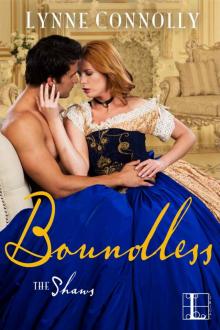 Boundless (The Shaws)
Boundless (The Shaws)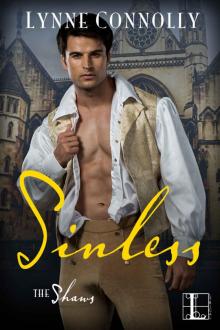 Sinless (The Shaws)
Sinless (The Shaws)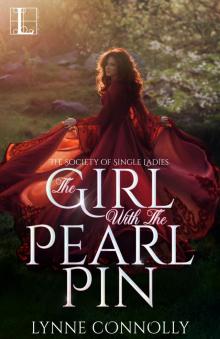 The Girl with the Pearl Pin
The Girl with the Pearl Pin Hosts to Ghosts Box Set
Hosts to Ghosts Box Set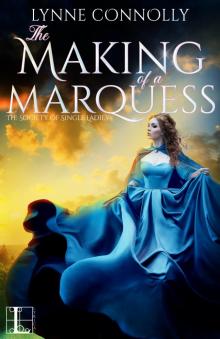 The Making of a Marquess
The Making of a Marquess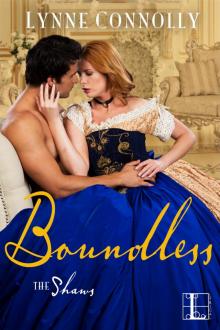 Boundless
Boundless Beauty of Sunset
Beauty of Sunset Virginia And The Wolf
Virginia And The Wolf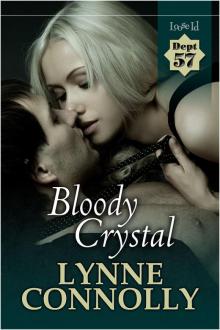 Department 57: Bloody Crystal
Department 57: Bloody Crystal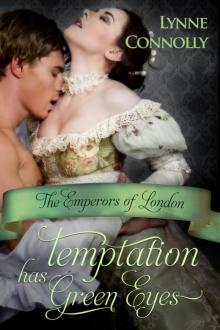 Temptation Has Green Eyes
Temptation Has Green Eyes Forged by Love: Even Gods Fall in Love, Book 4
Forged by Love: Even Gods Fall in Love, Book 4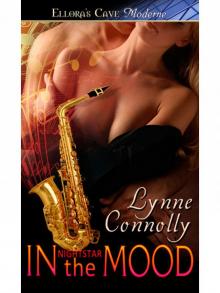 IntheMood
IntheMood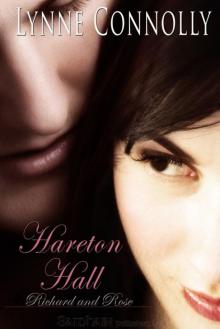 Hareton Hall: Richard and Rose, Book 6
Hareton Hall: Richard and Rose, Book 6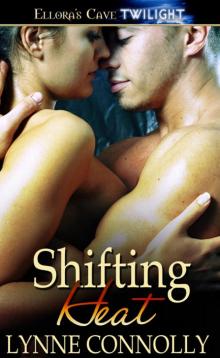 ShiftingHeat
ShiftingHeat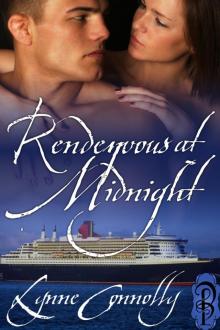 Rendezvous at Midnight
Rendezvous at Midnight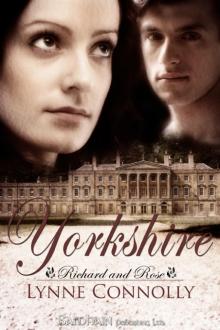 Yorkshire: Richard and Rose, Book 1
Yorkshire: Richard and Rose, Book 1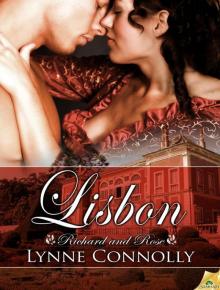 Lisbon: Richard and Rose, Book 8
Lisbon: Richard and Rose, Book 8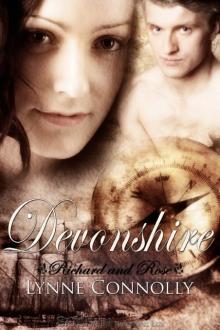 Devonshire: Richard and Rose, Book 2
Devonshire: Richard and Rose, Book 2 Venice
Venice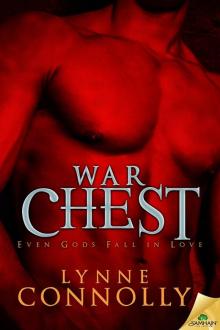 War Chest: Even Gods Fall in Love, Book 5
War Chest: Even Gods Fall in Love, Book 5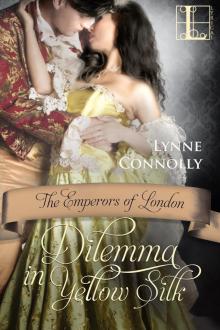 Dilemma in Yellow Silk (Emperors of London)
Dilemma in Yellow Silk (Emperors of London)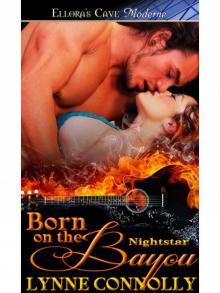 BornontheBayou
BornontheBayou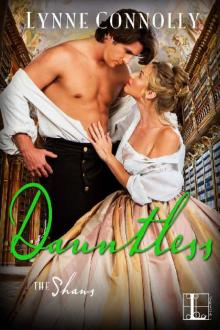 Dauntless (The Shaws)
Dauntless (The Shaws)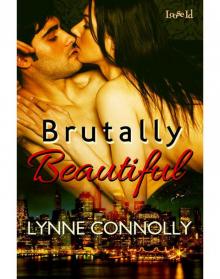 Brutally Beautiful
Brutally Beautiful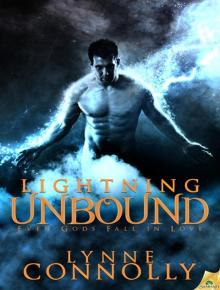 Lightning Unbound: Even Gods Fall in Love, Book 1
Lightning Unbound: Even Gods Fall in Love, Book 1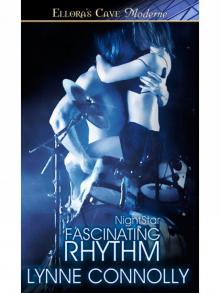 FascinatingRhythm
FascinatingRhythm Fearless
Fearless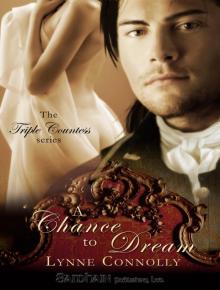 A Chance to Dream
A Chance to Dream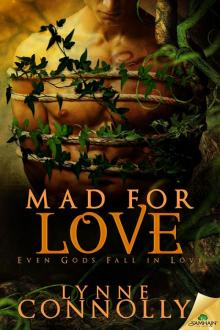 Mad for Love: Even Gods Fall in Love, Book 2
Mad for Love: Even Gods Fall in Love, Book 2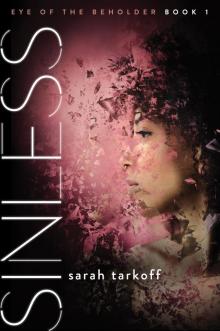 Sinless
Sinless SailtotheMoon
SailtotheMoon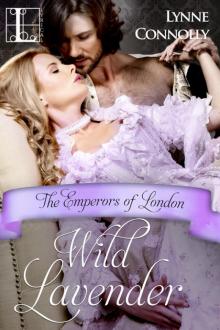 Wild Lavender
Wild Lavender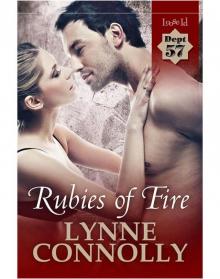 Department 57: Rubies of Fire
Department 57: Rubies of Fire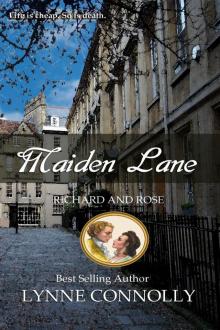 Maiden Lane
Maiden Lane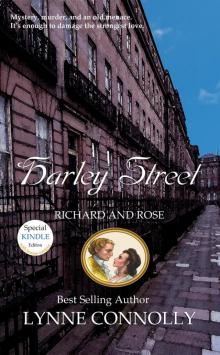 Harley Street
Harley Street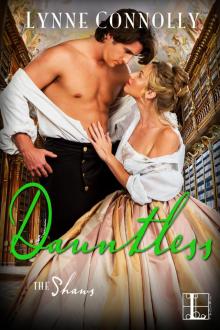 Dauntless
Dauntless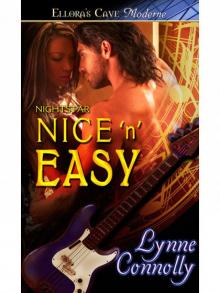 NicenEasy
NicenEasy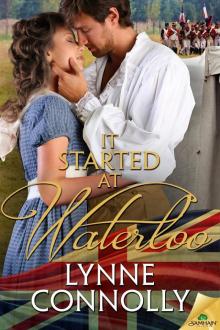 It Started at Waterloo
It Started at Waterloo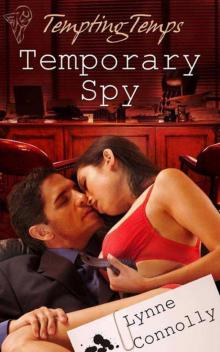 Temporary Spy
Temporary Spy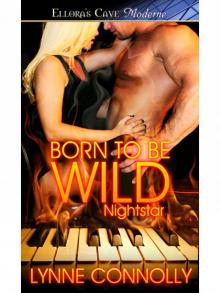 BorntobeWild
BorntobeWild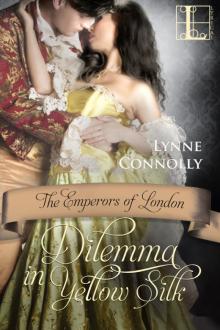 Dilemma in Yellow Silk
Dilemma in Yellow Silk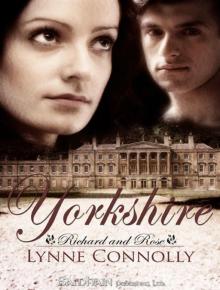 Yorkshire
Yorkshire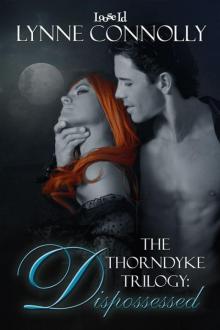 The Thorndykes 1: Dispossessed
The Thorndykes 1: Dispossessed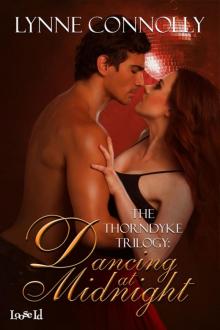 The Thorndyke Trilogy 2: Dancing at Midnight
The Thorndyke Trilogy 2: Dancing at Midnight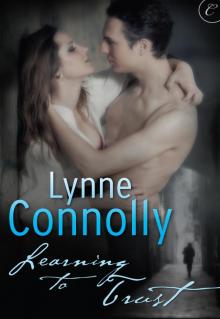 Learning to Trust
Learning to Trust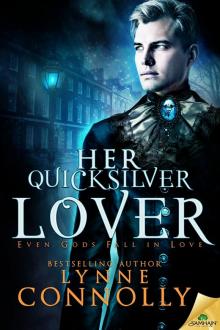 Her Quicksilver Lover: Even Gods Fall in Love, Book 6
Her Quicksilver Lover: Even Gods Fall in Love, Book 6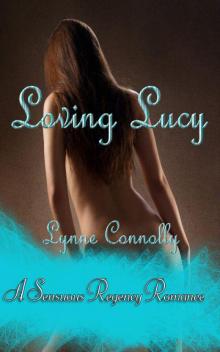 Loving Lucy
Loving Lucy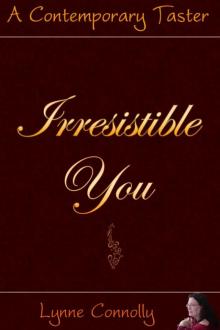 Irresistible You
Irresistible You Arrows of Desire: Even Gods Fall in Love, Book 3
Arrows of Desire: Even Gods Fall in Love, Book 3 Unbroken
Unbroken Devonshire
Devonshire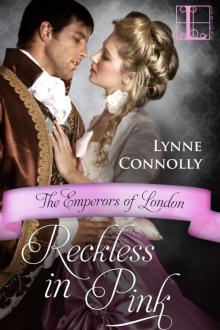 Reckless in Pink
Reckless in Pink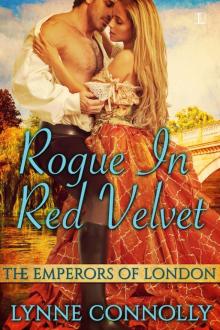 Rogue in Red Velvet
Rogue in Red Velvet